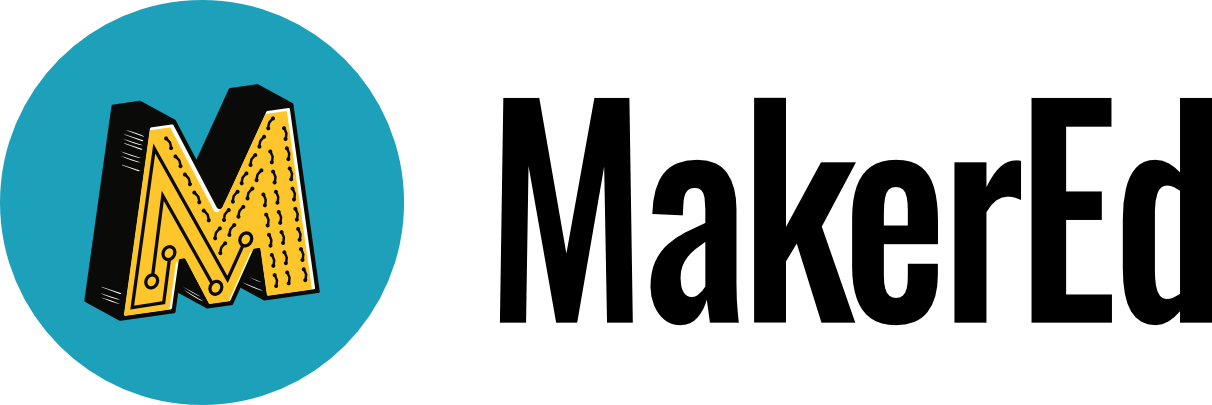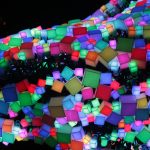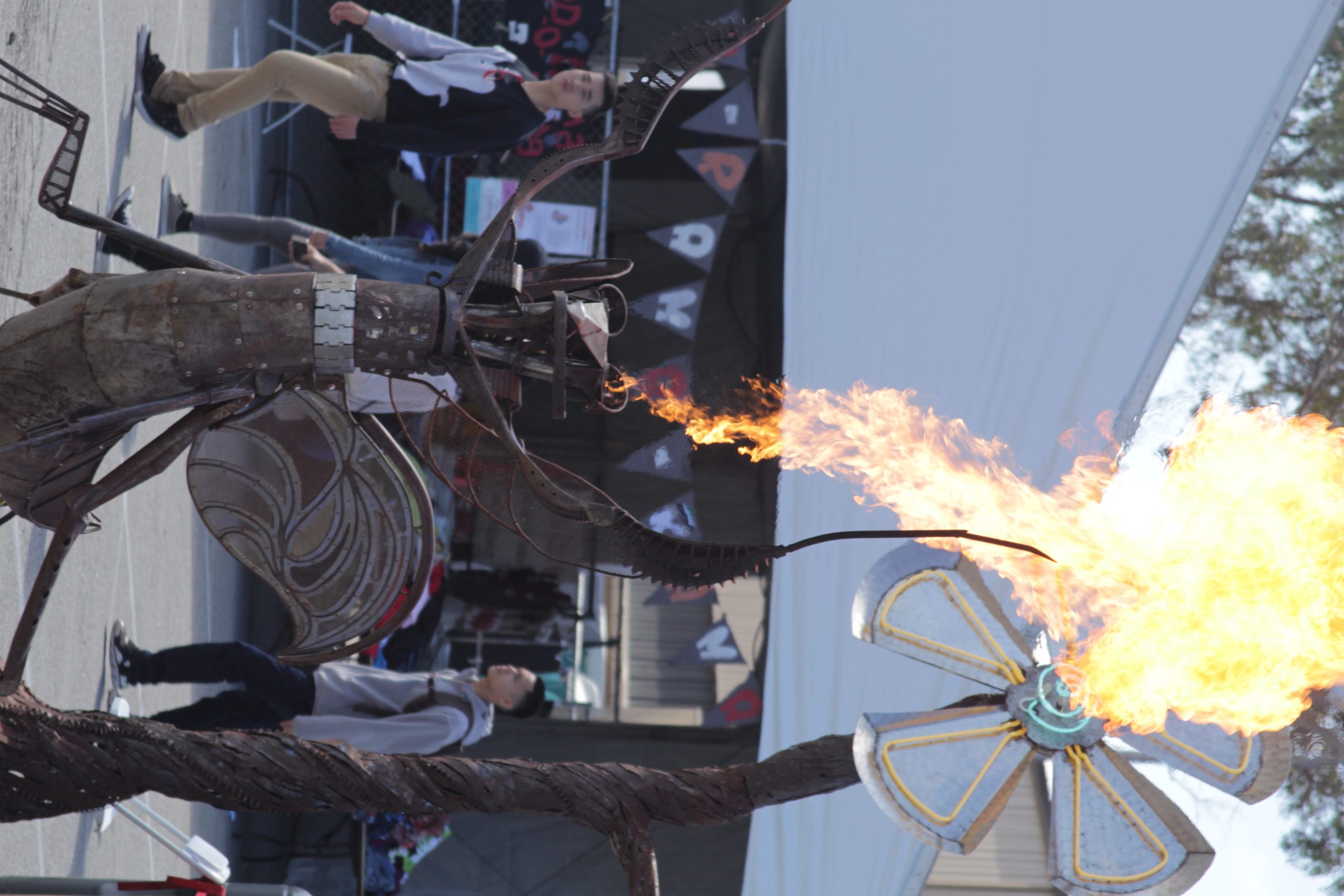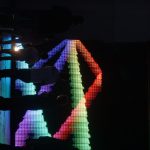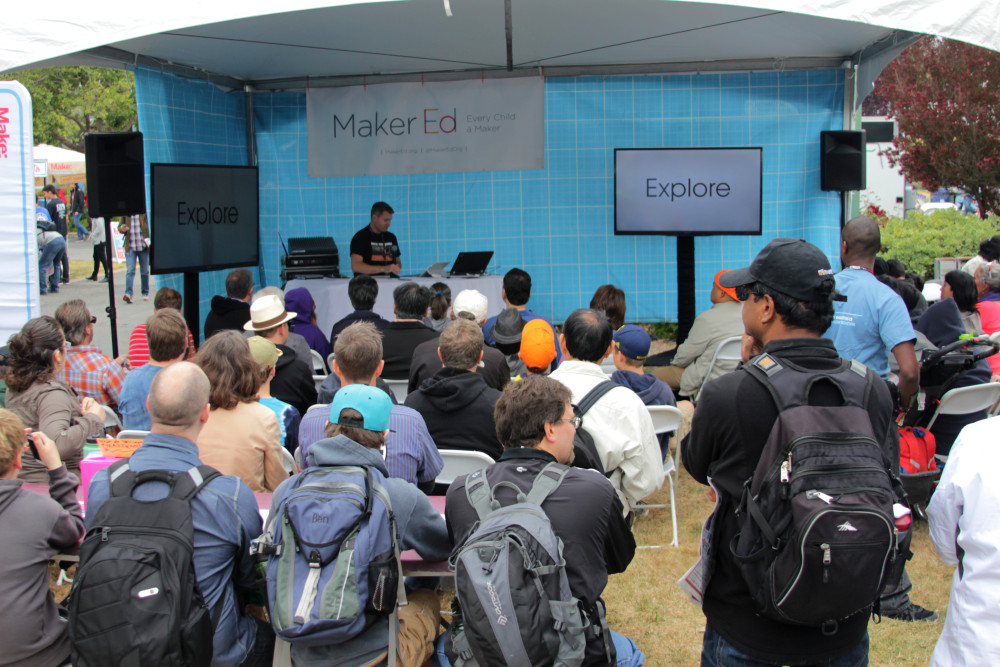 This blog post is a personal account from Maker Ed’s Communications Manager, Briana Flin. Briana wrote about her experience attending Maker Faire Bay Area last year, when she was brand-new to the organization, and to the idea of making in general.
This blog post is a personal account from Maker Ed’s Communications Manager, Briana Flin. Briana wrote about her experience attending Maker Faire Bay Area last year, when she was brand-new to the organization, and to the idea of making in general.
A lot has changed in the year since I wrote this blog post about my experience attending and participating in Maker Faire for the first time. Last year, I was just a few short weeks into my time with Maker Ed. I was still getting my bearings, still trying to understand what making was, still a little unsure that I was really a maker, and completely unsure of what to expect at Maker Faire.
This year, I had a better idea of what I was getting myself into. I had been to Maker Faire Bay Area once before and was prepared to see cupcakes roll by, witness giant sculptures breathe fire, and to geek out over seeing R2D2 in real life. I had gotten to know more people interested in making and maker education (some of the most welcoming and kindest individuals I have ever met, by the way). And, perhaps most importantly of all, I felt less intimidated by the the term “making” because I had gained a better understanding of what it meant to both others and myself.
In fact, I realized that I actually had been making in some form or another since I was a kid — I just didn’t have a name for those random experiences playing and tinkering around with creative projects. Some examples include:
- begging my dad to let me borrow his camcorder when I went to the park with my friends and played, and filming absurd stories we invented that made total sense to us (and to no one else)
- gathering photos taken by family members, and designing and printing personalized calendars as holiday gifts
- writing short stories, some based on one of my favorite children’s book series at the time (Mrs. Piggle Wiggle) and some completely original (though, being shy, I kept these very private)
In reflecting on these experiences and others, and keeping in mind the reassurances and welcoming attitudes of my colleagues and others, I felt that making was NOT some exclusive activity solely reserved for experts in technology and/or engineering. Rather, I felt that making was an inclusive open-ended process of exploring, creating and learning, one that encompassed all sorts of experiences, personalities, and levels of knowledge, and one that belonged to everyone.
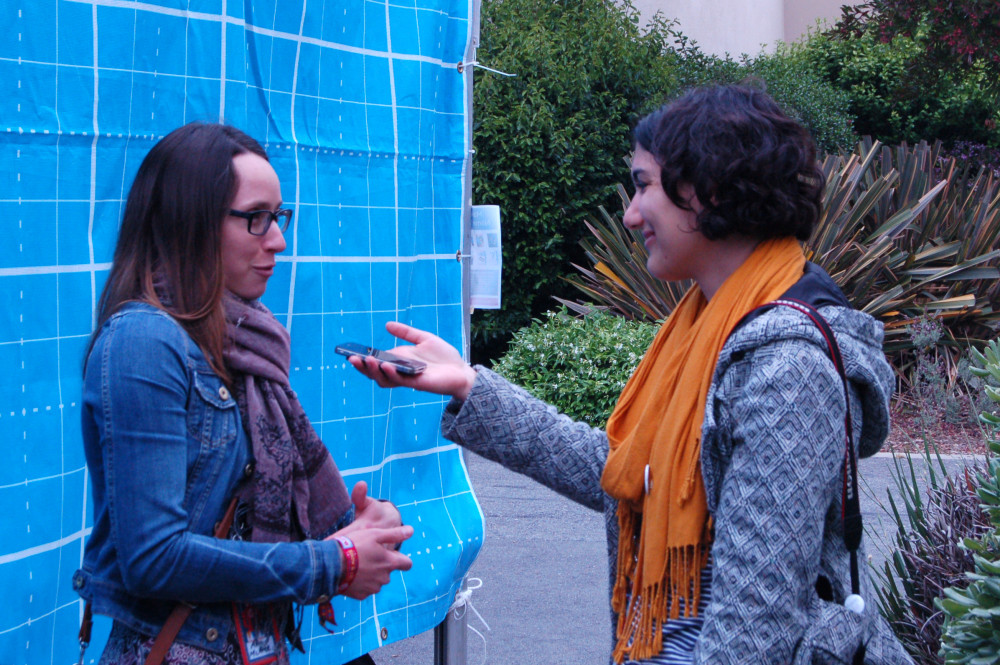
With this sense of belonging in hand, this year at Make Faire Bay Area, I spent more my time connecting with others, not just observing them from afar. I felt more comfortable asking questions and talking to attendees, exhibitors and presenters, including many of the educators at our Maker Ed Stage. (In fact, I actually interviewed a few of our presenters for a photo series, viewable here, inspired by of one of my favorite photo projects, Humans of New York.) Having this sense of confidence and feeling of belonging added a new, incredibly valuable dimension to my Maker Faire Bay Area experience.
Now, with all that said, there were some aspects of my experience hadn’t actually changed that much since last year. I still felt inspired by the sense of creative and collaborative energy that permeated the Faire’s grounds. There was still a vibrant exchange of creations, processes, stories and ideas. And the Maker Ed Stage still felt like the epicenter of this exchange, and of the forward-looking, inspiring, and pluralistic spirit of Maker Faire in general.
At our Maker Ed Stage, we heard from teens from Lawrence Hall of Science’s TechHive internship program, who shared their experiences making and their tips for younger makers.
.@TechHiveStudio interns sharing advice for younger makers: don’t get stuck theorizing or planning things, just do it! #MakerEdStage #MFBA15
— Maker Ed (@MakerEdOrg) May 16, 2015
Students from the Lighthouse Community Charter School shared some of the projects that they created and their process in creating these projects.
Students sharing making inspirations & awesome projects: Robots, laser-cut jewelry, fairy houses… #makeredstage pic.twitter.com/fiCFfTGr1n
— Maker Ed (@MakerEdOrg) May 17, 2015
We had our very own Steve Davee give a talk that explored traditional, surprising, and novel examples of makerspaces, and our own Stephanie Chang discuss the Open Portfolio Project
.@sdavee sharing a wide spectrum of making & makerspaces: historical dioramas, theaters, filmmaking, gardens, blocks, radio. #MakerEdStage
— Maker Ed (@MakerEdOrg) May 16, 2015
Great question by @sdavee Why do we take blocks away after kindergarten? #MakerFaire #makered pic.twitter.com/vziXhELpXh
— Erica Fortescue (@ericafortescue) May 17, 2015
“Portfolios can showcase student creativity & work better than a grade or a score” @heyasteph #OpenPortfolios #MakerEdStage
— Maker Ed (@MakerEdOrg) May 16, 2015
We hosted a panel of some of our partnering maker educators, who shared inspiring and useful stories from their schools, libraries, museums and organizations.
#MakerEdStage: @createdbysteph sharing story of a shy kid who built 3D printer, started iPhone case business & took it to @WhiteHouse MF.
— Maker Ed (@MakerEdOrg) May 17, 2015
.@reCREATEorg heard a boy in a low-income classroom say: “you mean, you don’t need to go to the store to do art?” Beautiful! #MakerEdStage
— Maker Ed (@MakerEdOrg) May 17, 2015
.@6Gems sharing her inspiration for @BlackGirlsCode: getting her daughter interested in making games, not just playing them. #MakerEdStage
— Maker Ed (@MakerEdOrg) May 17, 2015
.@LuzRivas @DIYGirls: we’re successful when the girls take their projects home to share with their families & friends #MakerEdStage
— Maker Ed (@MakerEdOrg) May 17, 2015
.@pronovost: kids are excited to skip recess to spend time in our makerspaces & they don’t want to leave when recess is over. #MakerEdStage
— Maker Ed (@MakerEdOrg) May 17, 2015
And so much more.
“Making is as much about kids hearts as their hands” @curiosityhacked #MakerEdStage
— Maker Ed (@MakerEdOrg) May 17, 2015
Panel with @JessicaKParker sharing the roles of leaders in the maker movement #MakerEdStage pic.twitter.com/CCzTGogBCF
— Maker Ed (@MakerEdOrg) May 17, 2015
Ilya Pratt of Oakland’s Park Day School sharing @AgencybyDesign thinking tools and routines #MakerEdStage pic.twitter.com/If8MWHm3uF
— Maker Ed (@MakerEdOrg) May 16, 2015
Making “really comes back to agency or ownership of learning.” @aVndrwrff #MakerEdStage #MFBA15 #MakerFaire
— Maker Ed (@MakerEdOrg) May 16, 2015
“It’s not the robots that I love. It’s what the robots can do for education that I love.” @sharonmarzouk #MakerEdStage
— Maker Ed (@MakerEdOrg) May 17, 2015
As a second-timer, Maker Faire Bay Area and the Maker Ed Stage did not fail to inspire.
